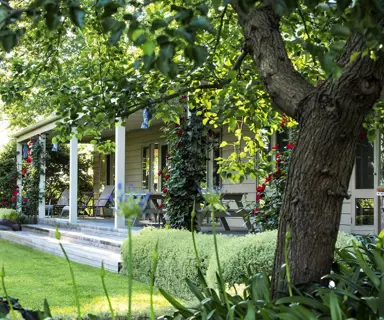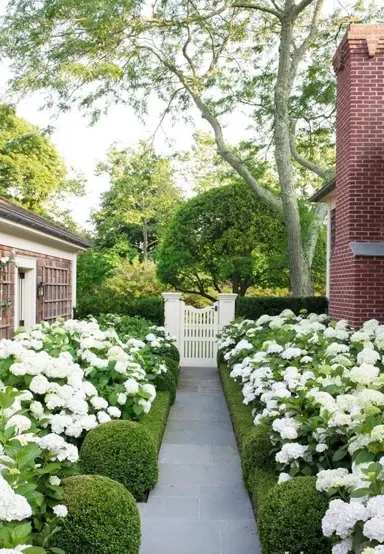
The Plant Company has the best Ajuga plants for sale, a fantastic range, and we can ship them to you fast! Browse our amazing range of New Zealand-grown plants to find beautiful Ajuga plants for your garden.
Ajuga 'Catlins Giant', commonly known as the Bugleweed plant, forms a mat of glossy, burgundy leaves as it grows to 25 cm tall and 80 cm wide. Stems...
Ajuga 'Chocolate Chip' is a compact groundcover prized for its narrow, glossy bronze-purple leaves and vibrant blue flower spikes in spring. Growing...
Ajuga 'Jungle Beauty', commonly known as Carpet Bugle, is a ground-covering plant characterised by dark green leaves with a purple tinge. It produces...
Ajuga 'Pink Elf' is a charming ground cover that brings soft pink flower spikes and compact, vibrant foliage to NZ gardens. This petite and hardy...
Ajuga 'Black Scallop' is a bold ground cover that enriches NZ gardens with its deep, glossy, near black foliage and striking blue flower spikes in...
Ajuga 'Blueberry Muffin' is a robust and colourful ground cover that brings rich blue flower spikes and deep green foliage to NZ gardens. This hardy...
Ajuga 'Burgundy Lace' forms a spreading mound of leaves dappled in green, cream, and smoky pink. The foliage is adorned with spikes of blue flowers...
Ajuga 'Mahogany' is a richly coloured ground cover that brings warm mahogany toned foliage and vibrant blue flower spikes to NZ gardens. This hardy...
Ajuga 'Metallica Crispa' is a striking ground cover featuring metallic bronze purple foliage with beautifully crinkled texture. This hardy and low...
Ajuga ‘Pink Beauty’ is a colourful, low-growing groundcover known for its dense foliage and charming soft pink flower spikes in spring and early...
Ajuga 'Pink Spike' is a vibrant ground cover that lifts shaded NZ garden spaces with its bright pink flower spikes and lush, low growing foliage...
Ajuga 'Pink Spire' is a striking ground cover that brightens NZ gardens with its soft pink flower spikes rising above rich green foliage. This hardy...
Ajuga 'Port Wine' brings deep wine coloured foliage and vivid blue flower spikes to NZ gardens, creating a rich tapestry of colour in shaded and semi...
Ajuga reptans, commonly known as Bugleweed, Common Bugle, or Carpet Bugle, forms a spreading mound of dark green leaves which often take on bronze...
Ajuga reptans 'Alba' is a beautiful ground cover that brings fresh brightness to NZ gardens with its pure white flower spikes and lush green foliage...
Ajuga reptans 'Multicolour' brings a tapestry of vibrant foliage shades to NZ gardens, with tones of green, bronze, cream, and rose blending through...
Ajuga reptans 'Purple Torch' is a striking ground cover that lights up shaded NZ gardens with its rich purple flower spikes and deep green foliage...
Ajuga reptans ‘Purpurea’ is a bold, low-growing groundcover with rich bronze-purple foliage and vibrant blue flower spikes in spring. Reaching 10–15...
Ajuga reptans 'Variegata' is a quick-growing, ground-covering plant that features colourful leaves that are variegated green and cream. In spring, it...
Ajuga 'Silver Carpet' is a standout ground cover admired for its soft silver toned foliage and tidy, low growing habit. This hardy variety spreads...
Ajuga plants, also known as bugleweed, carpetweed, or ground pine, are a versatile and attractive addition to any New Zealand garden. Known for their striking foliage and vibrant flowers, these hardy perennials are perfect for gardeners looking to add color and texture to their landscapes. In this article, we will explore some of the best ajuga plants available in NZ, discuss their benefits, and provide tips on how to care for them.
Ajuga is a genus of flowering plants in the mint family, Lamiaceae. These low-growing perennials are native to Europe, Asia, and Africa, and have become popular around the world for their ability to thrive in various conditions. Ajuga plants are known for their dense foliage and spikes of blue, purple, or white flowers that appear in spring and early summer.
Ajuga plants offer several advantages for gardeners in New Zealand:
There are several ajuga varieties available in New Zealand, each with its own unique characteristics. Here are some of the most popular options:
Ajuga reptans 'Catlin's Giant' is a popular variety known for its large, glossy leaves and tall flower spikes. The dark green foliage is tinged with bronze, providing a beautiful contrast to the deep blue flowers. This variety is perfect for creating a lush, carpet-like effect.
This variety is prized for its striking tricolour foliage, which features shades of green, cream, and pink. The colourful leaves create a stunning backdrop for the blue flower spikes that appear in spring.
Ajuga 'Chocolate Chip' features small, chocolate-brown leaves that create a dense, low-growing mat. The deep blue flowers contrast beautifully with the dark foliage, making this variety a popular choice for edging and ground cover.
This variety is known for its dark, almost black foliage and scalloped leaf edges. The deep blue flowers appear in spring, providing a striking contrast to the dark leaves. 'Black Scallop' is an excellent choice for adding drama and depth to your garden.
If you're looking to buy ajuga plants in New Zealand, the best option is with The Plant Company. We have a wide range of Ajugas that are ready for their new home. Our google rating shows how well we serve our customers and the testifies to the quality we produce.
Ajuga plants are relatively low-maintenance, but there are a few key tips to ensure they thrive in your garden:
Planting
Watering
Fertilising
Pruning and Maintenance
Whether you need assistance finding the plant you’re looking for or you simply want to know more about who we are and what we do, we invite you to get in touch with us today. A member of The Plant Company team will get back in touch as soon as possible.


